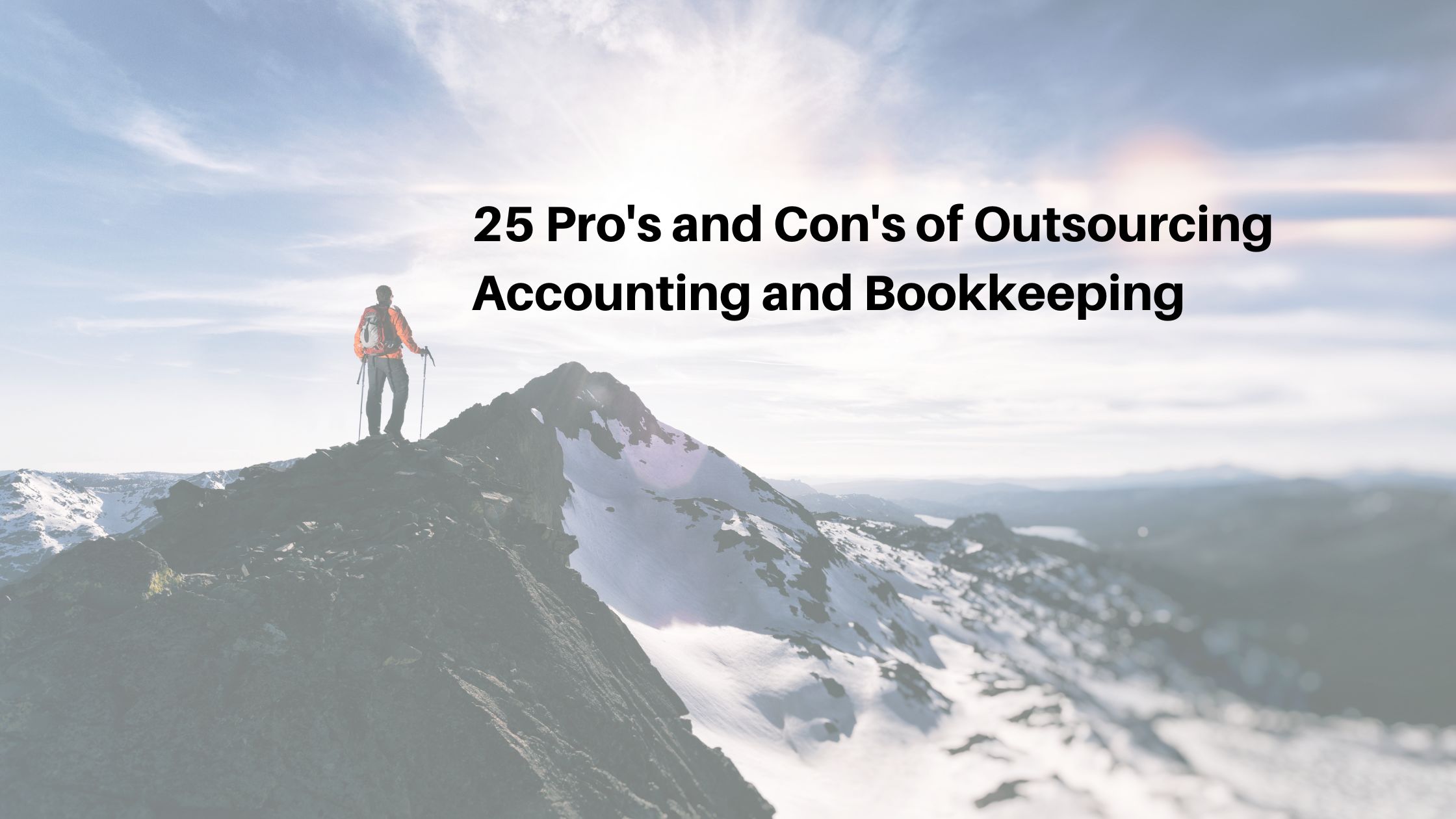Streamline Task Allocation and Team Collaboration With Monograph
Wiki Article
Checking Out the Trick Attributes of Monograph Bookkeeping for Successful Accountants

Specifying Monograph Accountancy: A Comprehensive Summary
Monograph bookkeeping represents a customized technique within the wider field of monetary coverage. This technique stresses the detailed and methodical paperwork of economic purchases and their effects. Unlike traditional bookkeeping, Monograph accounting is frequently tailored to special circumstances or particular markets, offering a concentrated framework for evaluation and reporting. It allows accountants to delve much deeper right into certain locations, offering a thorough view that aligns closely with organizational purposes.A key attribute of Monograph bookkeeping is its versatility; it can include numerous bookkeeping criteria and techniques as needed. This versatility makes it possible for accountants to produce records that are not only exact however also pertinent to stakeholders. Furthermore, the approach commonly entails considerable research and assessment of financial data, ensuring that every facet is extensively understood and recorded. Hence, Monograph accountancy functions as a vital device for accountants aiming to provide informative economic analyses customized to particular contexts.
The Importance of Quality and Accuracy in Financial Reporting

Inaccurate or unclear reporting can lead to illinformed approaches, wore down trust fund among financiers, and regulatory examination. Therefore, accountants need to focus on precision in their work, making certain that figures are meticulously verified and financial narratives are coherent. This not just fosters transparency but likewise improves the total trustworthiness of the company.
Eventually, clarity and accuracy in monetary reporting are indispensable for maintaining stakeholder confidence and promoting lasting organization growth. Accounting professionals play an important function in upholding these criteria, making their expertise very useful in navigating the complexities of monetary information.
Streamlining Decision-Making Processes Through Monograph Accounting
Efficiency in decision-making procedures is substantially improved with the concepts of Monograph audit. By consolidating extensive monetary information into a particular, meaningful framework, accounting professionals can rapidly access important information necessary for educated options. This technique lowers the time invested in data retrieval and analysis, allowing for a more active feedback to economic circumstances.In addition, Monograph audit emphasizes clear classification and thoughtful company of economic purchases, which lessens errors and miscommunication. When accounting professionals make use of these concepts, they can provide economic insights in a structured manner, assisting in discussions amongst stakeholders.
In addition, the standardization fundamental in Monograph bookkeeping makes it possible for smooth comparisons across various periods or divisions, additionally helping in tactical planning. This streamlined method not only enhances the internal processes of audit experts yet additionally boosts the overall business agility, empowering services to adapt to changing market conditions quickly.
Key Advantages for Accounting Professionals and Their Customers
While embracing Monograph audit might require a preliminary financial investment of time and resources, the long-term advantages for both accounting professionals and their customers are substantial. This accountancy approach promotes enhanced precision and openness, permitting accountants to preserve clearer monetary records. By consolidating info right into a single story, customers obtain much better insights into their financial health and wellness, facilitating notified decision-making.Essay accountancy cultivates more powerful customer relationships through boosted communication. Accounting professionals can offer financial data in an extra absorbable style, making it easier for clients to comprehend complicated details. This clearness not just develops depend on yet also motivates proactive economic management
Additionally, the streamlined procedures connected with Monograph accountancy decrease the chance of errors, which can conserve both money and time. Eventually, the assimilation of this method results in a lot more efficient operations, enabling accounting professionals to provide better service while empowering clients with enhanced monetary understanding and control.
Practical Applications of Monograph Audit in Numerous Industries
In what ways can monograph audit transform different industries? By offering a focused and detailed approach to financial coverage, Monograph accounting enhances clarity and precision across varied industries. In health care, as an example, it facilitates the accurate tracking of person expenses and resource appropriation, eventually improving financial monitoring. The manufacturing industry benefits from its organized evaluation of production prices, permitting much better prices methods and earnings evaluations.In the retail sector, Monograph accountancy aids in supply management and sales projecting, assisting organizations maximize supply levels and lower waste. In the not-for-profit sector, it helps in transparent reporting of grant funding and source use, fostering trust fund among stakeholders. Overall, Monograph audit's customized approaches allow organizations to accomplish financial openness and operational efficiency, making it an indispensable tool across different markets. Its flexibility makes certain that businesses can satisfy particular bookkeeping needs while maintaining compliance with laws.
Regularly Asked Concerns
What Software program Is Ideal for Carrying Out Monograph Audit?
The very best software application for applying Monograph audit consists of copyright, Xero, and Sage. These systems supply detailed features tailored for reliable monitoring, reporting, and management of monetary data, facilitating streamlined accountancy processes for specialists.How Does Monograph Accounting Differ From Typical Audit Techniques?
Monograph accountancy concentrates on specific jobs or customers, stressing comprehensive monitoring and reporting for certain entities, while typical accountancy accumulations information throughout all entities, prioritizing total monetary health and wellness instead of project-specific insights and performance.What Are Typical Challenges Accounting Professionals Face With Monograph Audit?
Accountants frequently encounter difficulties with Monograph accountancy, including intricacy in financial coverage, integration with existing systems, making certain conformity with policies, adjusting to special customer needs, and handling the thorough paperwork required for accurate assessments.
Exist Specific Regulations Governing Monograph Accounting Practices?
Yes, certain guidelines commonly govern Monograph bookkeeping techniques, consisting of adherence to national bookkeeping criteria, conformity with tax obligation regulations, and industry-specific guidelines. Accountants have to remain educated to ensure their techniques line up with these established frameworks.Just How Can Accountants Remain Upgraded on Monograph Accountancy Trends?
Accounting professionals can remain updated on Monograph audit trends by subscribing to sector magazines, attending relevant workshops and seminars, taking part in expert companies, and engaging with on-line forums dedicated to accounting criteria and finest Monograph Consultants methods. (Monograph For AE)Monograph accounting offers a special structure that improves monetary reporting for accountants. Unlike typical audit, Monograph bookkeeping is frequently tailored to details markets or unique situations, giving a focused structure for analysis and reporting. A crucial function of Monograph accountancy is its flexibility; it can include different accountancy criteria and practices as required. By offering a concentrated and detailed approach to monetary reporting, Monograph audit boosts clearness and precision throughout diverse industries. Yes, certain guidelines often govern Monograph audit practices, consisting of adherence to nationwide audit requirements, conformity with tax policies, and industry-specific guidelines.
Report this wiki page